
Fun Lovin' Criminals are an American rap rock band from New York City. They are best known for their hit "Scooby Snacks", which features samples from films by Quentin Tarantino, and the song "Love Unlimited", which recalls Barry White's backing vocal group. Their songs often focus on life in New York City, as well as urban life in general. Their lyrics can be gritty or existentialist in nature, touching on topics such as organized crime and urban violence, but they are just as often humorous or satirical. The band gained a large following internationally, notably in Northwest Europe, around the release of their first two albums in the late 1990s.
A greatest hits album or best-of album is a type of compilation album that collects popular and commercially successful songs by a particular artist or band. While greatest hits albums are typically supported by the artist, they can also be created by record companies without express approval from the original artist as a means to generate sales. They are typically regarded as a good starting point for new fans of an artist, but are sometimes criticized by longtime fans as not inclusive enough or necessary at all.
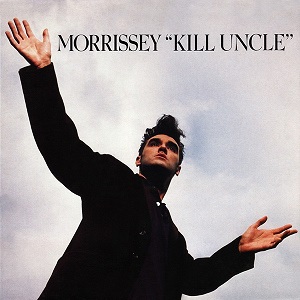
Kill Uncle is the second solo studio album by the English alternative rock singer Morrissey, released on 4 March 1991 by EMI Records and HMV Records. The title comes from the black comedy film Let's Kill Uncle (1966).
Now That's What I Call Music! is a series of various artists compilation albums released in the United Kingdom and Ireland by Sony Music and Universal Music which began in 1983. Spinoff series began for other countries the following year, starting with South Africa, and many other countries worldwide soon followed, expanding into Asia in 1995, then the United States in 1998.

Forty Licks is a double compilation album by the Rolling Stones. A 40-year career-spanning retrospective, Forty Licks is notable for being the first retrospective to combine their formative Decca/London era of the 1960s, now licensed by ABKCO Records, with their self-owned post-1970 material, distributed at the time by Virgin/EMI but now distributed by ABKCO's own distributor Universal Music Group. Four new songs are included on the second disc. The album was a commercial success, as it reached No. 2 on both UK and US charts. Concurrently with the album's release, the Stones embarked on the successful, year-long international Licks Tour, which would result in the subsequent Live Licks album being released in 2004.
"Long Black Veil" is a 1959 country ballad, written by Danny Dill and Marijohn Wilkin and originally recorded by Lefty Frizzell.

Any Trouble are a British rock band, originating from Crewe, England, best known for their early 1980s recordings.

Fotheringay was a short-lived British folk rock group, formed in 1970 by singer-songwriter and musician Sandy Denny on her departure from Fairport Convention. The band drew its name from her 1968 composition "Fotheringay" about Fotheringhay Castle, in which Mary, Queen of Scots had been imprisoned. The song originally appeared on the 1969 Fairport Convention album, What We Did on Our Holidays, Denny's first album with that group. The original Fotheringay released one self-titled album but disbanded at the start of 1971 as Denny embarked on a solo career. Forty-five years later, a new version of the band re-formed featuring the three original surviving members together with other musicians, and toured in 2015 and 2016.
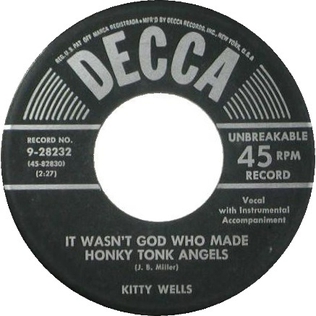
"It Wasn't God Who Made Honky Tonk Angels" is a 1952 country song written by J. D. "Jay" Miller, and recorded by Kitty Wells. It was an answer song to the Hank Thompson hit "The Wild Side of Life." First performed by Al Montgomery as "Did God Make Honky Tonk Angels" on the Feature label which was owned by songwriter J.D. Miller.

Gladys Mills, known as Mrs. Mills, was an English pianist who was active in the 1960s and 1970s, and who released many records. Her repertoire included many sing-along and party tunes made popular in the music hall, using a stride piano technique.

Stripped is a live album by the English rock band The Rolling Stones released in November 1995 after the Voodoo Lounge Tour. It contains six live tracks and eight studio recordings. The live tracks were taken from four 1995 performances, at three small venues, and include a cover of Bob Dylan's "Like a Rolling Stone", which was the first single from the album. The remaining eight tracks were acoustic studio re-recordings of songs from the Stones' previous catalogue, the exception being a cover of Willie Dixon's "Little Baby". The studio performances were recorded "live," i.e., without overdubs.
R. Crumb and his Cheap Suit Serenaders are an American retro string band playing songs from, and in the style of, the 1920s: old-time music, ragtime, "evergreen" jazz standards, western swing, country blues, Hawaiian, hokum, vaudeville and medicine show tunes. Underground cartoonist Robert Crumb was the band's frontman and album cover artist. Other members of the band include fellow cartoonist Robert Armstrong and filmmaker Terry Zwigoff.

"House of Fun" is a song by English ska/pop group Madness, credited to Mike Barson and Lee Thompson. It was released as a one-off single on 14 May 1982 and reached number one in the UK Singles Chart, spending nine weeks in the charts. The song was re-released in 1992, reaching number 40. It is the band's only number one single in the UK and in 2015 the British public voted it as the nation's 8th favourite 1980s number one in a poll for ITV.

The Very Best of Slade is a compilation album by the British rock band Slade. It was released in 2005 and reached No. 39 in the UK charts, remaining in the charts for four weeks. The album has sold 139,390 copies as of November 2015.
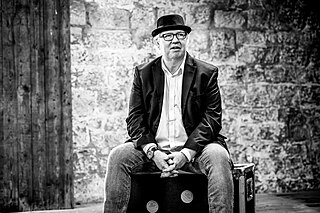
Clive James Gregson is an English singer-songwriter, musician and record producer. He has toured in bands, provided backup for well-known musicians, and written songs that have been covered by Kim Carnes, Norma Waterson and Nanci Griffith. He is featured in Hugh Gregory's 2002 book 1,000 Great Guitarists.

Greatest Hits is a compilation album by the British band Steve Harley & Cockney Rebel, released by EMI in 1987.

The Psychomodo is the second studio album by Cockney Rebel, released on 2 June 1974 by EMI. It was produced by Steve Harley and Alan Parsons.

"Raining in My Heart" is a song recorded by Buddy Holly on October 21, 1958 at the Pythian Temple on West 70th Street in New York City, with the orchestral backing by Dick Jacobs. The music and lyrics are written by the songwriting team of Felice Bryant and Boudleaux Bryant. It was released as a single on Coral Records in 1959, peaking at number 88 on the Billboard chart as the B-side of "It Doesn't Matter Anymore". This recording was included on Buddy Holly's first "greatest hits" compilation album, The Buddy Holly Story, that was released in March 1959.
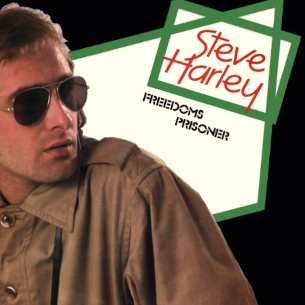
"Freedom's Prisoner" is a song by British singer-songwriter Steve Harley, which was released in 1979 as the only single from his second solo album The Candidate. The song, which was written and produced by Harley and Jimmy Horowitz, reached number 58 in the UK Singles Chart.
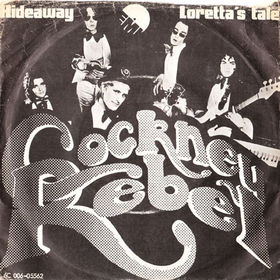
"Hideaway" is a song by the British rock band Cockney Rebel, fronted by Steve Harley. Released as the opening track on the band's 1973 debut album The Human Menagerie, "Hideaway" was released in 1974 as a single in Denmark only. It was written by Harley and produced by Neil Harrison.















